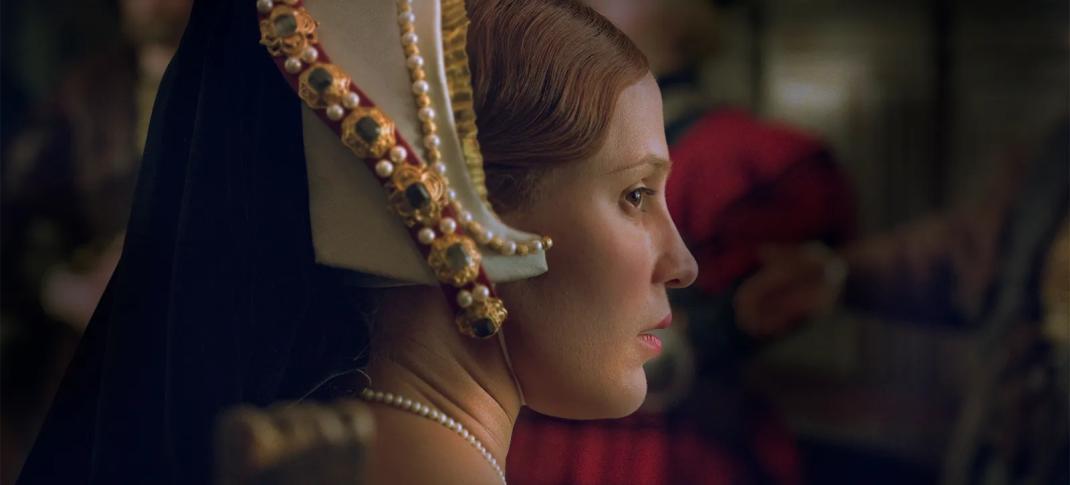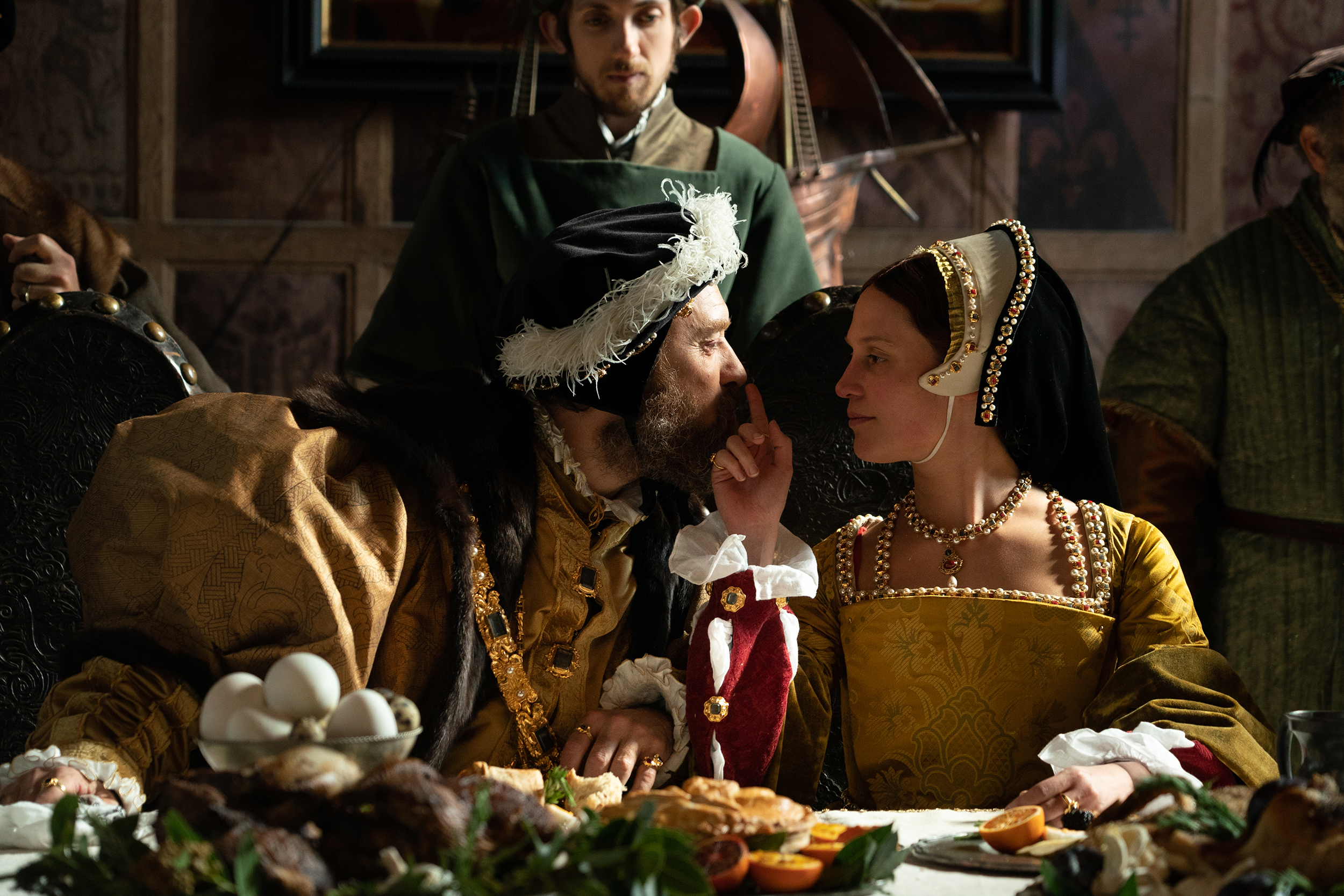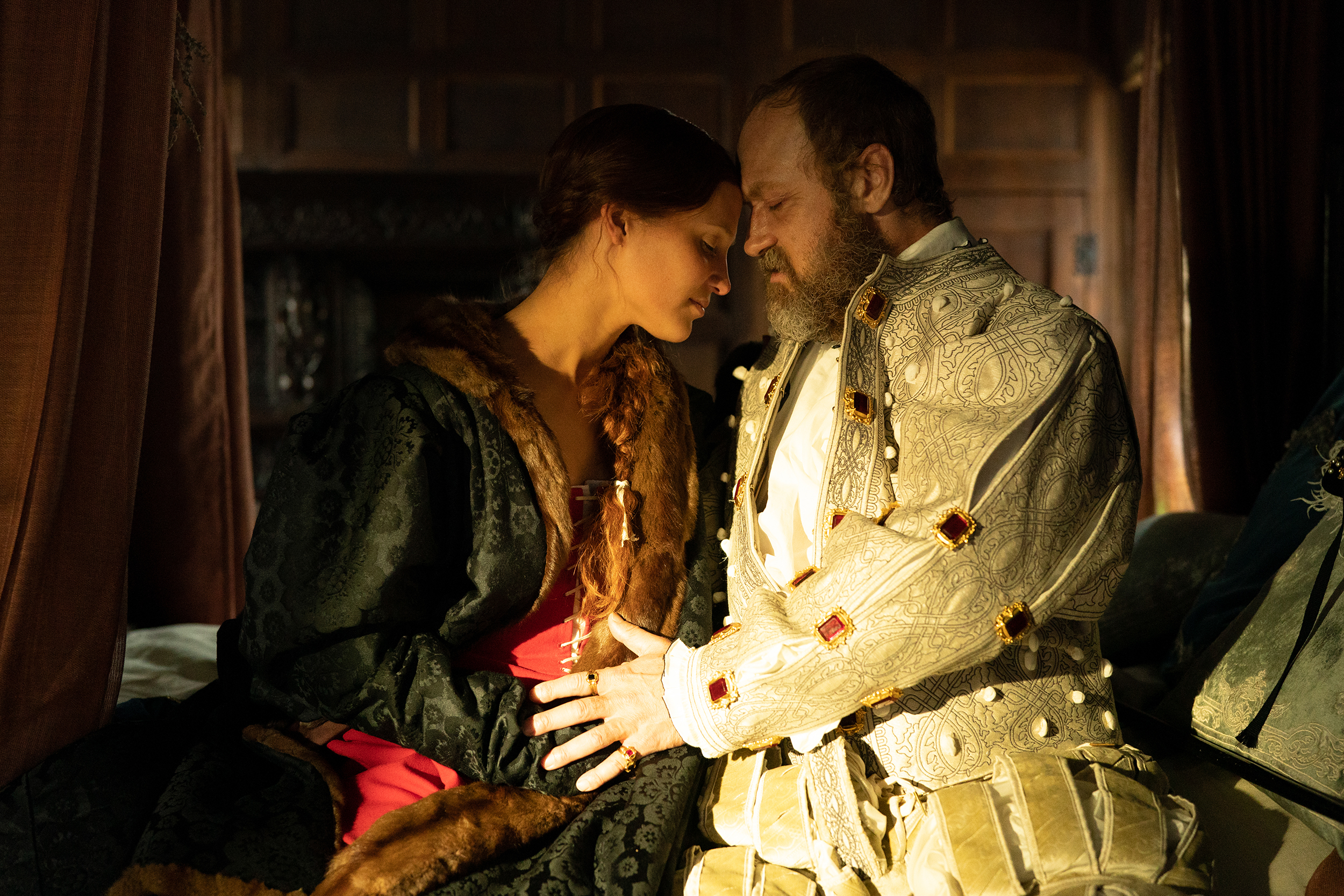'Firebrand' Isn't Angry Enough to Burn It All Down

Alicia Vikander and Jude Law in "Firebrand"
(Photo: Larry D. Horricks/Brouhaha Entertainment)
It looks like an absolute nightmare being married to King Henry VIII, not just because of the statistical likelihood of death or national humiliation, but because even when Henry was dying of ulcerated infection, you could still be considered a dangerous, threat-to-the-crown liability. Of all the fates experienced by Henry Tudor’s wives, it’s easy to think his sixth wife Katherine Parr got the best deal (rhyme reminder: she survived), but Firebrand, from Brazilian director Karim Aïnouz, is less interested in the favorable comparisons of history and more with the immediate, gnawing tensions of royal court life in the waning hours of Henry’s reign.
Based on the first book of Elizabeth Fremantle’s historical fiction Tudor Trilogy, Queen’s Gambit (not hard to see why they changed the name), Firebrand pushes us close to Katherine (Alicia Vikander) as her short spell as Regent-General ends with Henry (Jude Law) returning from war with France. Her appointment to rule in his absence proved controversial among Henry’s top advisors, with only a couple of nobles fully backing her, but the flames around Katherine truly start licking when Henry is back. She has been making unsupervised visits and pledging support for a female radical preacher, Anne Askew (Erin Doherty), who whips up peasants with promises of holy liberty. These indiscretions are preyed upon by Bishop Gardiner (Simon Russell Beale) to the point of life-threatening persecution.
Firebrand blatantly scandalizes the historical events of Katherine’s last weeks with her husband in ways that both entertain and ring hollow. But for all its invention, Aïnouz’s film is unambitious, happy to coast on serviceable pleasures of the royal court psychodrama without much precision. Still, Firebrand is all the better for its concern with the drab mundanity of Tudor life and the sharp, pus-filled agony of regressive gender roles.
As Katherine, Vikander is well cast. The film rides the line between naturalistic, unstuffy period detail and outbursts of Von Trier-esque vulgar passion, and requires its actors to blend grounded emotion and raw, impulsive feeling. In films like A Royal Affair and The Green Knight, Vikander has shown a keen ability for this type of edgy historical fiction, and she ably carries the more dangerous and subversive waters Katherine wades into.
Despite the very annoying and shallow choice of being incredibly stinky for all his scenes (although Vikander stresses her co-star didn’t go full “Method”), Jude Law completely clicks as the Tudor king – maybe because Henry’s poor physical condition acts as a handy physical touchstone for the actor to lean into his withering but weighty presence. He’s not just sick in body, but in power – Henry’s domineering, nation-changing influence is being medically sapped away from him with every new dawn.
Firebrand settles into its tone, best described as a suppressed anticipatory dread inside country mansions, during the overlap of Katherine’s unjust persecution and Henry’s stuttering decline. The details of the story can’t be separated from the audience’s knowledge that this will be Henry’s last wife, and he will die before her; when Firebrand plays up this historical expectation, we can palpably feel the race against time: the king must die before his inner circle can hurt Katherine. This is complete with deliciously vile Tudor medical scenes, where a learned doctor applies maggots to infected flesh and hazards his best guess at how painful the wailing, roaring king’s death will be – no penicillin in the 1540s! Katherine even gets to delicately apply maggots herself, in case you thought their marriage lacked any intimacy.
The problem with Firebrand is that everything great about it feels like it’s hinting at a much more striking and resonant film. For all the right instincts about there being no invulnerable, unimpeachable way to be a Tudor queen, Firebrand lacks a proper hook, either a stylistic or narrative one, to skewer its themes and make Katherine feel like a fully realized presence – or maybe it just lacks the rigor and conviction to nail the hook it already has.
Aïnouz approaches the subject matter with thoughtful, intelligent filmmaking. A gruesome medical scene cuts with a leaden scene of Henry’s lovemaking; Katherine being summoned from gaol lets her ascend to the king’s chamber without making it clear whether it’s her or her husband’s fate that’s sealed, a timeline-breaking decision to give Katherine more agency over Henry’s demise directly subverts the way he’s treated her. In every case, the intent is identified but never felt; you’re more likely to think “I get it” about Aïnouz’s narrative flourishes than feel their subtext.
We’re told of how quietly radical Katherine’s religious writing was during her lifetime and beyond by a closing voiceover revealing this has all been from the perspective of Elizabeth I, Henry’s only surviving heir from his second marriage who went on to be a legendary queen of England. It's an attempt to make Katherine’s contribution to Tudor society feel relevant, suggesting Elizabeth’s radical reign was inspired by Parr and attempting to spin everything we've just seen through a liberatory feminist lens.
Firebrand suffers when it tries to revise history – not because history shouldn’t be revised, but because it does so without a clear vision or plan of attack. Still, when it makes us feel the heavy burdens and societal disease of Katherine’s world, you get a sense of the real heat of its title.
Firebrand opens in wide release across the U.S. on Friday, June 21, 2024.






